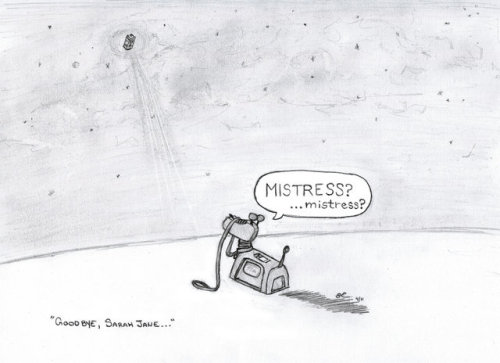You develop an instant global consciousness, a people orientation, an intense dissatisfaction with the state of the world, and a compulsion to do something about it. From out there on the moon, international politics look so petty. You want to grab a politician by the scruff of the neck and drag him a quarter of a million miles out and say, 'Look at that, you son of a bitch.'
The universe has to move forward. Pain and loss, they define us as much as happiness or love. Whether it’s a world, or a relationship…everything has its time. And everything ends.
If the database is the shape of knowledge in our time, then the definitive act of mediated communication is the data dump. So it is not surprising that the generation that has made the mash-up its prime aesthetic form has produced the data dump. But to put it this way is not to congratulate Wikileaks—at least not without considerable ambivalence. It’s to lament the coming of a certain—shall we say generational?—style of exposé. Wikileaks is the Facebook of whistle blowing.
This is precisely our situation today: we face the shameless cynicism of a global order whose agents only imagine that they believe in their ideas of democracy, human rights and so on. Through actions like the WikiLeaks disclosures, the shame – our shame for tolerating such power over us – is made more shameful by being publicised. When the US intervenes in Iraq to bring secular democracy, and the result is the strengthening of religious fundamentalism and a much stronger Iran, this is not the tragic mistake of a sincere agent, but the case of a cynical trickster being beaten at his own game.
The only surprising thing about the WikiLeaks revelations is that they contain no surprises. Didn’t we learn exactly what we expected to learn? The real disturbance was at the level of appearances: we can no longer pretend we don’t know what everyone knows we know. This is the paradox of public space: even if everyone knows an unpleasant fact, saying it in public changes everything.
The real scandal might just be this: There are few secrets bigger and more terrible than the ones that are hiding in plain sight. The ones we ignore, sweep under the rug, and won't, don't, or can't discuss. (And in fact, many of the "embarassing" WikiLeaks cables only confirm — in sharper language — what informed readers already knew.)
The notion of complete self-sufficiency of any item of finite knowledge is the fundamental error of dogmatism. Every such item derives its truth, and its very meaning, from its unanalyzed relevance to the background which is the unbounded Universe. Not even the simplest notion of arithmetic escapes this inescapable condition for existence.
Let’s say my goal is to sell 10,000 copies of something. And let’s say that if by putting DRM in it I sell 10,000 copies and I make my money, and if by having no DRM 100,000 copies go into circulation and I still sell 10,000 copies. Which of those is the better outcome? I think having 100,000 in circulation and selling 10,000 is way better than having just the 10,000 that are paid for and nobody else benefits.
People who don’t pay you generally wouldn’t have paid you anyway. We’re delighted when people who can’t afford our books don’t pay us for them, if they go out and do something useful with that information.
I think having faith in that basic logic of the market is important. Besides, DRM interferes with the user experience. It makes it much harder to have people adopt your product.
We are no longer living in a mass culture, built around mass production, mass education, mass entertainment, and weapons of mass destruction. Rather we are now living in a mesh world built around the mesh of networks, the mesh of relationships, the mesh of entertainment and education webs.
The noblest pleasure is the joy of understanding.
